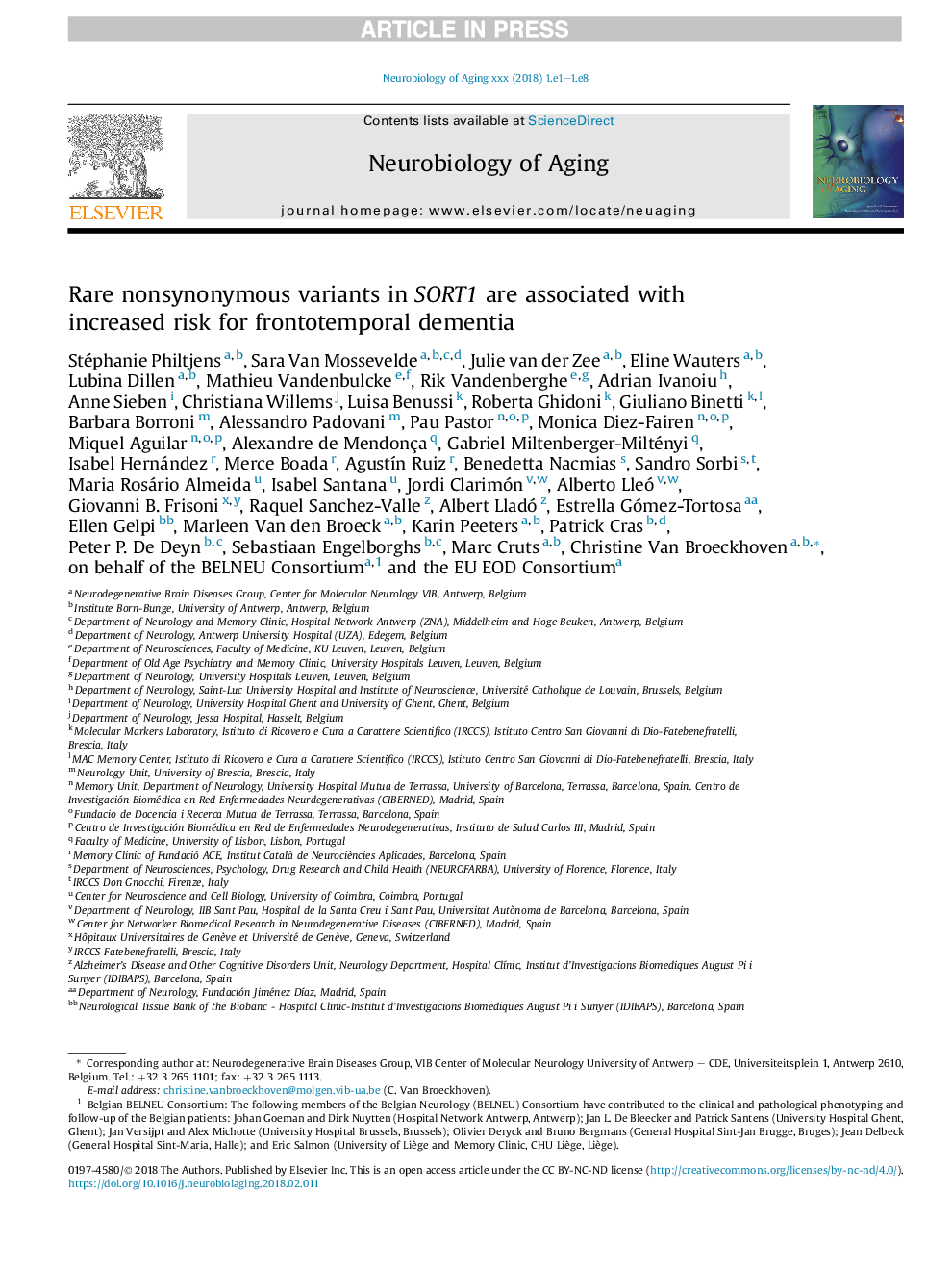| Article ID | Journal | Published Year | Pages | File Type |
|---|---|---|---|---|
| 6803032 | Neurobiology of Aging | 2018 | 8 Pages |
Abstract
We investigated the genetic role of sortilin (SORT1) in frontotemporal dementia (FTD). SORT1 is the neuronal receptor for granulin, encoded by the progranulin gene (GRN), a major causal gene for inherited FTD. In Belgian cohorts of 636 FTD patients and 1066 unaffected control individuals, we identified 5 patient-only nonsynonymous rare variants in SORT1. Rare variant burden analysis showed a significant increase in rare coding variants in patients compared to control individuals (p = 0.04), particularly in the β-propeller domain (p = 0.04), with 2 rare variants located in the predicted binding site for GRN (p = 0.001). We extended these observations by analyzing 3 independent patient/control cohorts sampled in Spain, Italy, and Portugal by partners of the European Early-Onset Dementia Consortium, together with 1155 FTD patients and 1161 control persons. An additional 7 patient-only nonsynonymous variants were observed in SORT1 in European patients. Meta-analysis of the rare nonsynonymous variants in the Belgian and European patient/control cohorts revealed a significant enrichment in FTD patients (p = 0.006), establishing SORT1 as a genetic risk factor for FTD.
Related Topics
Life Sciences
Biochemistry, Genetics and Molecular Biology
Ageing
Authors
Stéphanie Philtjens, Sara Van Mossevelde, Julie van der Zee, Eline Wauters, Lubina Dillen, Mathieu Vandenbulcke, Rik Vandenberghe, Adrian Ivanoiu, Anne Sieben, Christiana Willems, Luisa Benussi, Roberta Ghidoni, Giuliano Binetti, Barbara Borroni,
